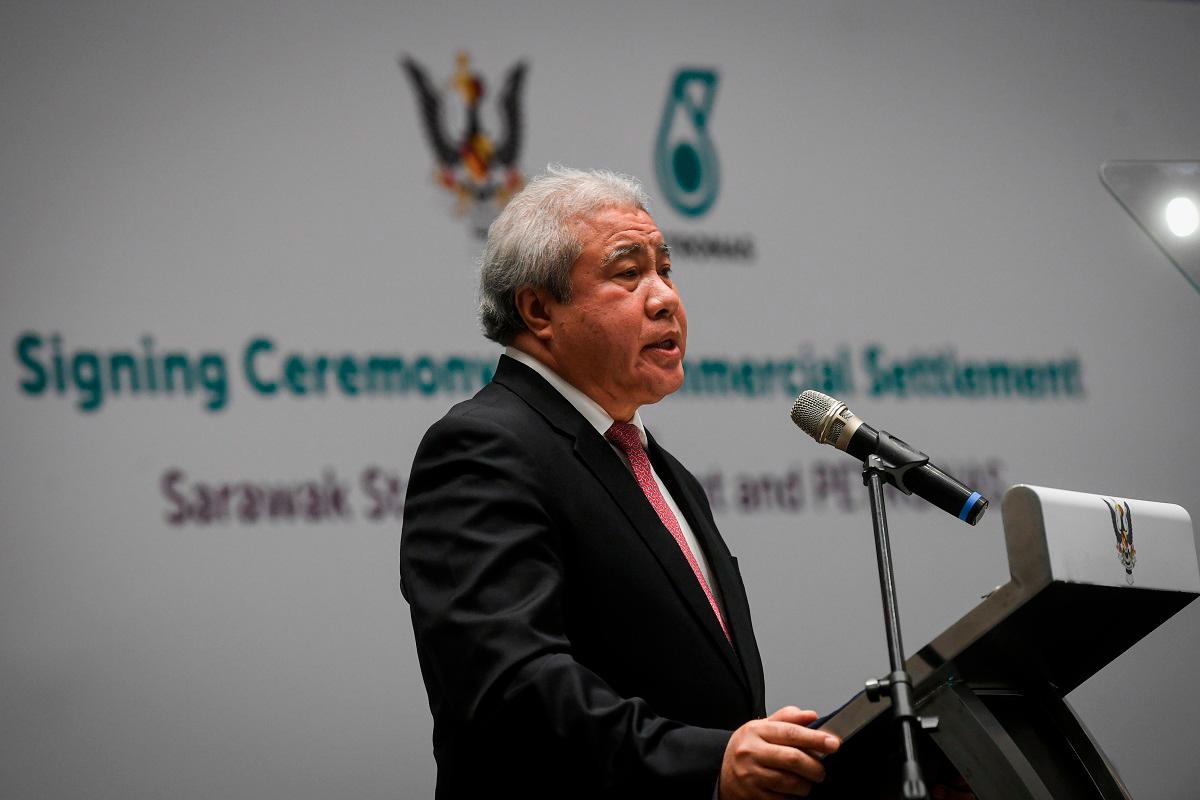KUCHING: The Sarawak state government is set to take over the management and control of the 660-kilometre-long gas pipeline stretching from Bintulu, northern Sarawak, to Kimanis in Sabah, following an agreement reached with the national oil corporation, Petronas.
Deputy Premier Datuk Amar Awang Tengah Ali Hassan (pic) confirmed the deal. He recently held a coordination meeting with Petronas executives regarding the transfer of the massive asset, which is currently owned by the petroleum giant, as stated in a press release from the Sarawak Public Communications Unit.
“Sarawak will take charge of the pipeline route, which traverses Bintulu, Miri, Baram, and Lawas on the Sarawak side before entering Sabah. We plan to re-purpose this infrastructure to support Sarawak’s future energy production goals,“ Awang Tengah was quoted as saying during the meeting.
This development follows Petronas’ decision last year to permanently cease all operations and seal off the interstate gas pipeline. The decision was prompted by multiple serious incidents, including leaks that led to fires and explosions over several years.
Former state assemblyman for Bakelalan, Baru Bian, had previously commented on the closure, noting the negative socio-economic impact and job losses in the area.
Bian stated that Petronas opted for the permanent shutdown after extensive ground investigations and serious consideration of safety concerns, including geological hazards and soil instability along the mountainous pipeline route.
Despite the billions spent on the project—which had provided employment and community benefits through corporate social responsibility initiatives—the pipeline’s history of leakages and blasts led Petronas to conclude that halting operations was necessary.
Bian had previously suggested a thorough safety review and upgrade before the final decision to permanently cease operations was made.
In September 2023, Petronas acknowledged a leak in the Lawas district section of the pipeline, attributing the damage in the mountainous interior to earth movement.
The company declared a “Force Majeure,“ impacting its contractual gas delivery commitments. This leak affected gas supply to the Malaysia Liquified Natural Gas 2 (MLNG 2) facility in Bintulu and subsequently impacted delivery to some customers.
The pipeline, which carries raw gas for processing and export at the Bintulu plant, snakes through 660km of rugged terrain. Past incidents include leaks, fires, and explosions in Long Sukang (June 2014, January 2018), Long Segaman (May 2019), and Long Kawah (January 2020). Baru Bian had previously voiced concerns about safety due to numerous populated settlements near the pipeline route, suggesting the entire structure be permanently decommissioned. The initial construction cost of the pipeline was reported to be around RM5 billion.









